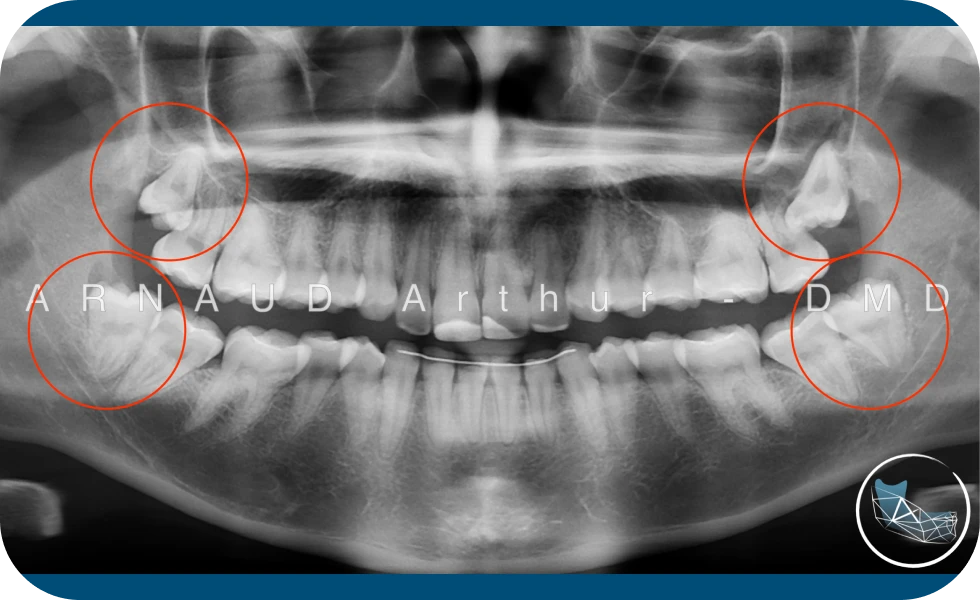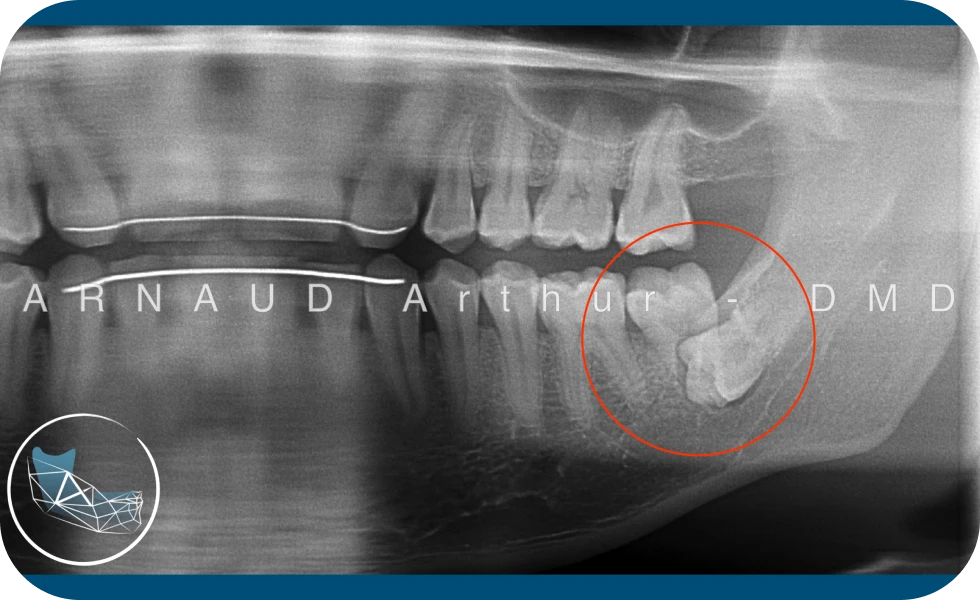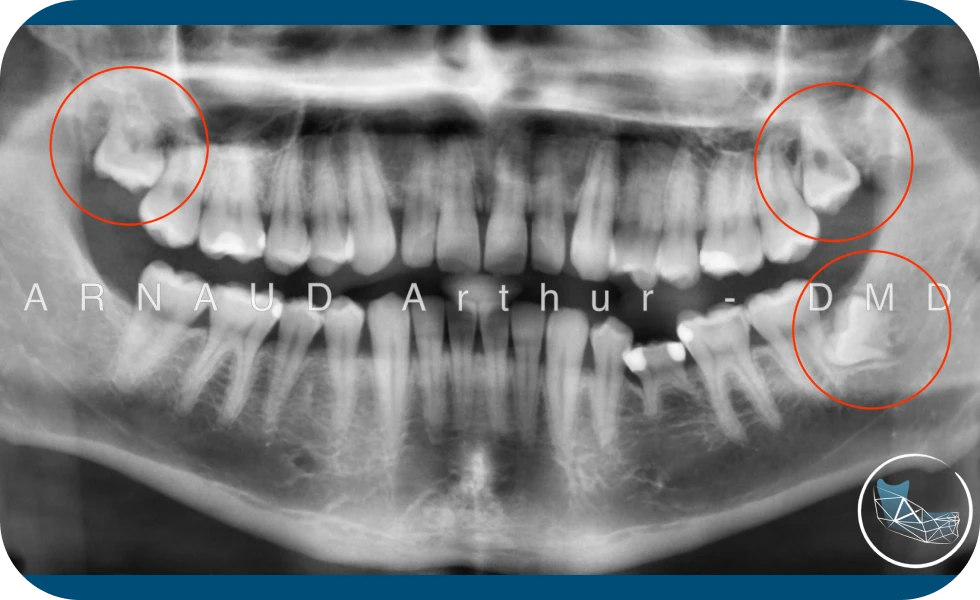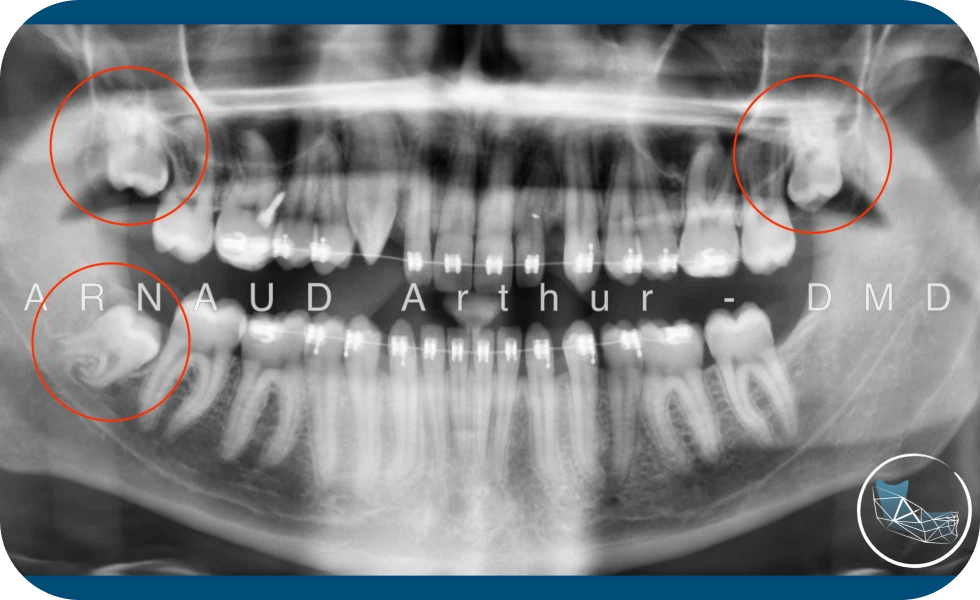Wisdom teeth
Wisdom teeth, also known as third molars, are the last teeth to develop. While some wisdom teeth grow in normally, most mouths are too small to accommodate a third set of molars. It’s important to have regular dental check-ups and to detect wisdom teeth early to know whether they can develop without causing problems.
Why choose a specialist in oral surgery to remove your wisdom teeth?
Oral surgeons have advanced training and specific experience that enables precise evaluation of X-rays/scans and detailed surgical planning in complex dental extractions, minimizing the risk of complications.
The infrastructure they have at their disposal contains specialized technical equipment for managing difficult cases, such as impacted wisdom teeth or those close to nerves.
What’s more, in the event of complications during or after the procedure, oral surgeons are equipped and trained to intervene quickly and effectively. Finally, their familiarity with surgical procedures reduces intervention time, making recovery faster and providing a better experience for the patient.
To find an oral surgeon in your area, recognized by the Swiss Federal Office of Public Health (SFOPH), visit the Swiss Society of Oral Surgeons (SSOS) website.

What is the best age to have wisdom teeth removed?
In most cases, it is advisable to have wisdom teeth removed before the teeth are fully formed at the root level. This improves the post-operative course and reduces the risk of complications.
As wisdom teeth develop, the roots become longer and the jawbone denser.
For some patients, the ideal time is around the age of 12 or 13; for others, it may not be until their early twenties.
Problems tend to occur more frequently around the age of 30. If you’re not sure whether your wisdom teeth need to be removed, contact Dr. Arnaud to schedule a consultation.
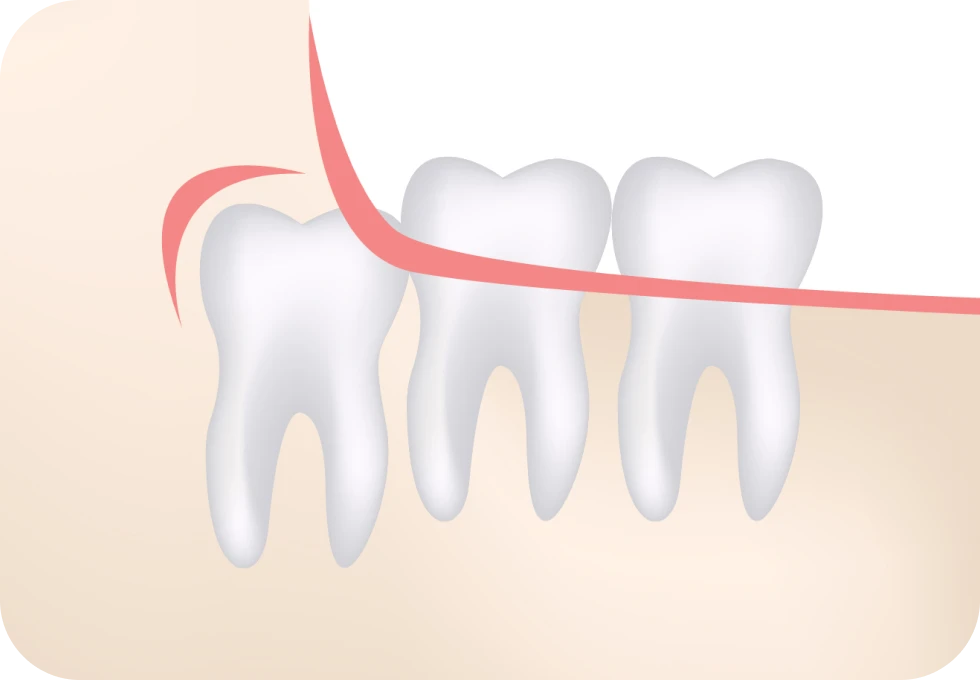
What are the risks of not removing wisdom teeth?
Possible problems with not removing your wisdom teeth include:
- The most common one we see is pericoronitis (a localized infection of the gums). Without enough room for full eruption, the gum tissue around the wisdom tooth can become inflamed, swollen and infected, retaining food leading to recurrent pain, swelling and problems chewing and/or swallowing.
- Non-infectious diseases can also occur in association with an impacted wisdom tooth. Cysts are fluid/tissue-filled cavities inside the jawbone that develop as a result of impacted teeth and grow slowly, painlessly destroying the jawbone and sometimes the teeth. They can be very difficult to treat if your wisdom teeth are not removed in adolescence.
- Impacted wisdom teeth can contribute to crowding. This is most noticeable with front teeth in the lower jaw and is most often seen after a patient has had braces. There are a number of factors that cause crowded teeth after braces or in early adulthood. Retained and impacted wisdom teeth can be a contributing factor.
- If there isn’t enough space for proper cleaning of the wisdom tooth and the tooth directly in front, the second molar, bone, gum and caries damage can occur.
Pre-operative consultation
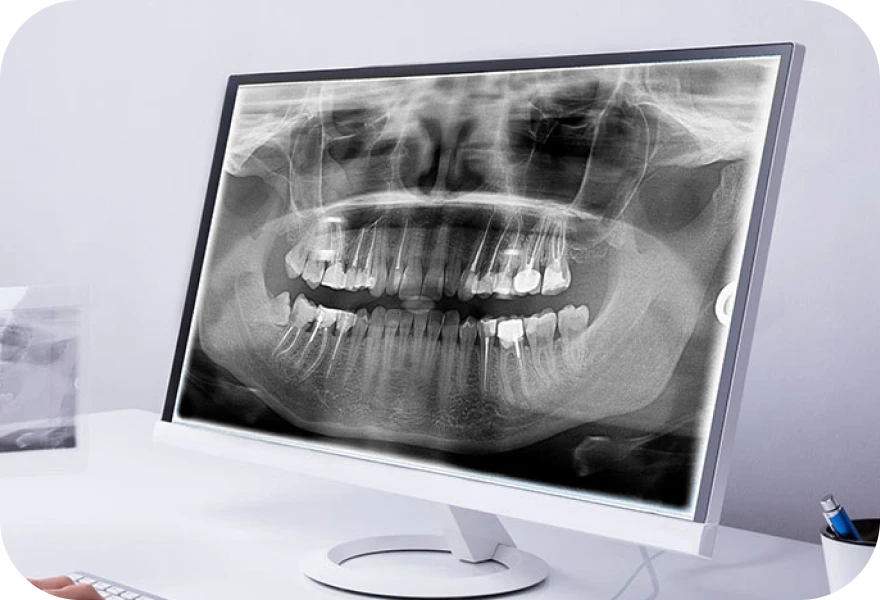
First visit
At your first visit, you’ll have a clinical and radiological examination to assess the position of your wisdom teeth. Dr. Arnaud will explain how the procedure is performed, the post-operative course and any medical treatments you may need to take if surgery is required.
The procedure can be performed under local or general anesthesia. The appropriate anesthesia options will be proposed to you during your consultation.
Wisdom teeth extraction surgery
All outpatient surgeries are performed under appropriate anesthesia to maximize your comfort.
These services are provided in an optimal safety environment, using modern equipment and experienced personnel.
In the case of general anaesthesia, our team is complemented by an FMH anaesthetist with full monitoring equipment.
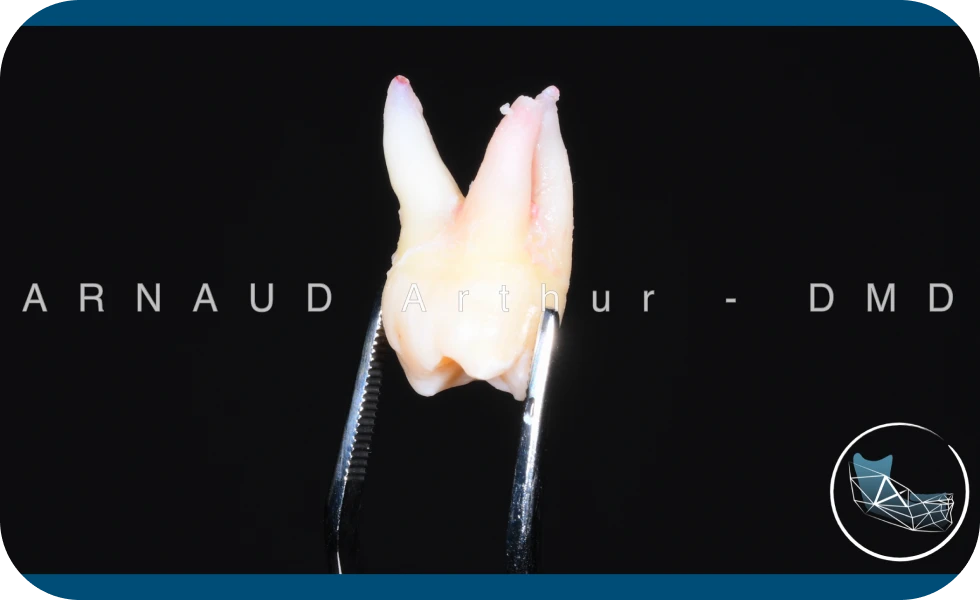
What happens the day the wisdom teeth are removed?
On the day of your procedure, you will take medication to help minimize post-operative pain and swelling. For a minor child, we ask that a parent or responsible adult accompany you and plan to stay with you for the rest of the day. The procedure will take approximately 30 to 60 minutes, and you will probably be in the clinic for 90 minutes.
On the day of surgery, once the anesthesia has taken effect, Dr. Arnaud will make micro-incisions in the gum tissue to access the wisdom tooth, which is often cut into pieces to reduce postoperative discomfort and facilitate removal. Surgical sites are closed with absorbable sutures.
After the operation, it’s important to carefully follow the instructions given during the pre-operative consultation. They will tell you what foods to avoid, how to prevent infection, and how to manage the normal after-effects (swelling, discomfort, bruising) in order to speed up healing.
How much does wisdom teeth surgery cost?
The price of your treatment is determined by a number of factors. These may include the difficulty of removing your teeth and the type of anesthesia that’s best for you. At your consultation appointment, Dr. Arnaud will analyze your x-rays, perform a clinical examination and determine the best option for anesthesia, so an accurate financial estimate can be provided.
Only certain specific situations are covered by LaMal insurance; in other cases, a complementary dental plan will be required for reimbursement.
Please contact your insurance company for details of your contract.
For foreign patients, reimbursement is possible if you have taken out international insurance.
Clinic staff will help you with any questions you may have about financing, and we can suggest payment plans to make care more accessible to more patients.
Any questions before the operation?
During your consultation, your particular situation will be discussed in greater detail. We encourage you to ask any questions you may have. If new questions arise after your consultation, please do not hesitate to contact the clinic.
After the wisdom teeth procedure
After a monitoring period, we’ll give you ice packs to apply to your cheeks, compresses to bite on the operated gum in case of slight bleeding and a follow-up appointment ten days after the procedure just before you return home.
Most procedures are performed under local anaesthetic, so you can leave the clinic alone. If the procedure is performed under general anesthesia, we strongly recommend that you be accompanied, and you are not allowed to drive.
These anesthesia options will be discussed in consultation prior to scheduling the procedure.
